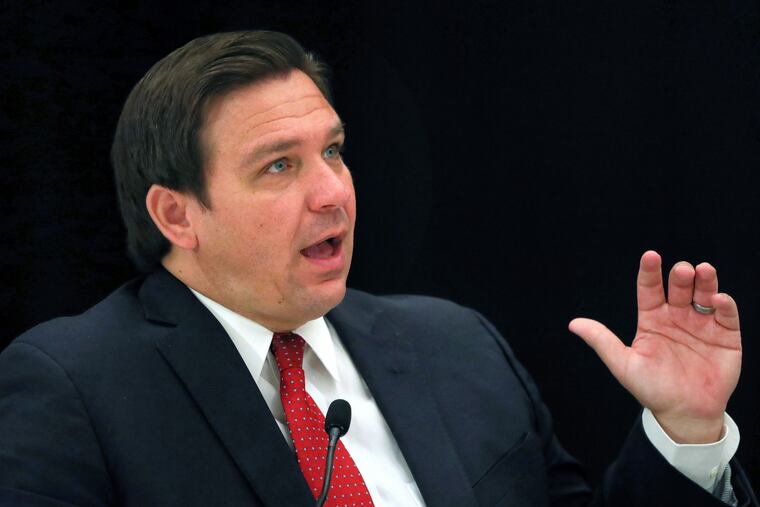New laws that restrain public health measures are good for the coronavirus, bad for humans | Opinion
Efforts to limit mask mandates, vaccination status checks, and emergency measures could grant the virus a new lease on life.

Pity the poor coronavirus. To paraphrase a famous line, it can’t get no respect.
Thousands of scientists around the world have been searching for ways to slaughter it, and governments in the United States and elsewhere have supported them with large sums of money. The Trump administration spent more than $12 billion on Operation Warp Speed to develop and distribute vaccines that deny it safe harbor in peoples’ bodies, and the Biden administration proposed an additional $20 billion to distribute the vaccines to millions more. And every day, the immune systems of many people massacre virus particles by the trillions, often with the help of drugs being developed with government support.
Because of efforts like these, the coronavirus is in retreat in the United States, as rates of new cases and deaths from COVID-19, the disease it causes, have fallen dramatically.
» READ MORE: Pa. House votes to end Gov. Tom Wolf’s pandemic disaster declaration
But the microscopic packets of genetic material that make up the coronavirus need not despair just yet. They have loyal friends in high places in the United States who are eager to help them.
Legislatures in at least 15 states have passed or are considering laws to stop the virus’s public health enemies in their tracks. These measures could give those microscopic particles, along with new ones that could cause pandemics in the future, a new lease on life.
The efforts of the virus’s friends are varied and innovative. Last month, in Florida, they enacted a law prohibiting businesses, including cruise lines, from checking the vaccination status of customers. The law leaves the operators of cruise ships with no way to tell who might be exhaling virus particles for fellow passengers to breathe in a confined space at sea. A veritable fantasy island for the coronavirus to play in.
In North Dakota, legislators recently enacted a law (overriding the governor’s veto) that prohibits state officials from requiring the use of face masks, proven to be highly effective in limiting the virus’s spread. The law even prevents mask mandates for people with other contagious diseases, like active tuberculosis. Why limit beneficence to just one deadly pathogen?
The coronavirus has long had a friend in Kansas, where legislators decided last year to remove the governor’s authority to close businesses to prevent its spread. In that state, the virus can look forward to a future filled with more super-spreader events in crowded premises.
» READ MORE: Pa. enacted 140 laws last year. Only 27 of them addressed the coronavirus.
Legislative leaders here in Pennsylvania also seized the chance to crimp the governor’s virus-fighting powers. They successfully promoted two ballot initiatives, passed in May, to limit the authority to issue emergency declarations. One permits the legislature to terminate declarations with a resolution the governor cannot veto (which they now appear poised to do), and the other reduces the length of resolutions from 90 to 21 days unless the legislature approves an extension. Virus particles in our state now face less of a threat that firm executive action will be taken against them.
Of all the virus’s friends, none have been more dedicated than those in Montana. Last month, they enacted a law recognizing vaccination status as a legally protected class. Employers are not just prevented from requiring employees to be vaccinated, they may not even ask about it. This may be the first time in American history that the right to spread a deadly disease has received formal legal protection. No kowtowing by these legislators to the architects of mass vaccination from both the Trump and Biden administrations.
These laws, and others like them, are likely to save the lives of countless trillions of coronavirus particles and help bring trillions more into existence. With help like this, the virus has a fighting chance of sticking around for many years to come.
Of course, for humans, the new laws might be seen in a different light. Many who have the opportunity to host the microscopic virus particles in their lungs could face the risk of serious illness or death. They may wonder whether respect for virus particles and for the freedom of people to spread them deserves quite so much protection. In its place, they might support an opposing goal: protecting human life.
Robert I. Field holds a joint appointment as professor of law and professor of health management and policy at Drexel University. He is a member of The Inquirer’s Health Advisory Panel and a frequent contributor on health policy.